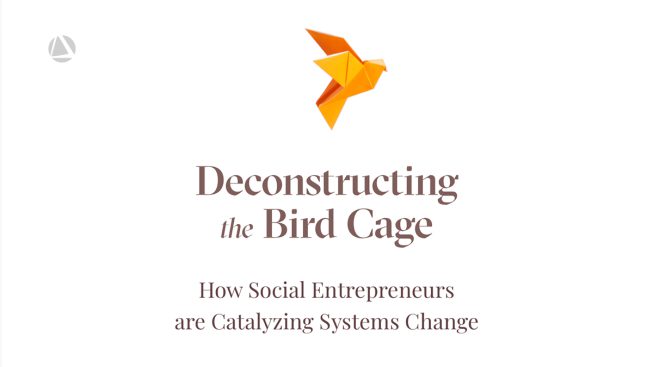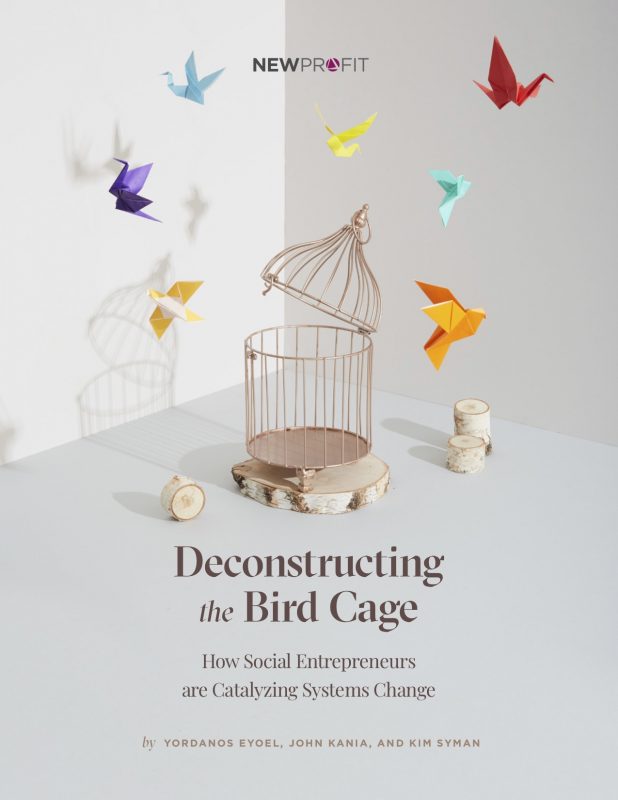Deconstructing the Birdcage

With the start of a new decade, we are excited to share our latest thinking on systems change—one of the most promising approaches to driving sustainable, large-scale social change that we believe the social sector needs to rally behind in the coming years.
A year ago, New Profit launched the Systemic Solutions Initiative, which was inspired by two simple questions:
- Can the field of social entrepreneurship, which has spurred sector innovation at the program and policy level for the past several decades, also function as a catalyst for holistic systems change?
- What kinds of support might a venture philanthropy organization like New Profit provide to help?
To examine these questions, New Profit’s Systemic Solutions team has engaged in conversation, analysis, and partnership with over two dozen social entrepreneurs in the U.S. who are either working or attempting to work at the systemic level of change. In 2019, we made initial philanthropic investments in two organizations leading systems change efforts to change the conditions that hold social problems in place, GirlTrek and The Health Initiative.
The focus of our initial discovery has been to understand how a social entrepreneur’s systemic work differs in nature from scaling programmatic work. We have also been exploring implications this has for organizational and leadership capacities required to do this work effectively.

We have captured some of our initial insights in the newly released: Deconstructing the Bird Cage: How Social Entrepreneurs are Catalyzing Systems Change.
In this article, we share our emerging understanding of several “system impact models” that social entrepreneurs are pursuing. We feature examples of organizations from the New Profit community who have put these models into practice, including the Burns Institute, FII, FoodCorps, GirlTrek, Prosecutor Impact, and The People. We also identify questions and implications for social entrepreneurs and funders who might wish to adopt and support these systemic approaches.
Our hope is that, through sharing our learning to date, we can help to demystify the different ways social entrepreneurs can participate in systems change. We also hope to do our part in strengthening the knowledge base within the field of how systems change happens to inspire others to pursue it.
We hope you will dig into the article and share your reactions with us. You can contact the authors directly at [email protected], [email protected], and [email protected]